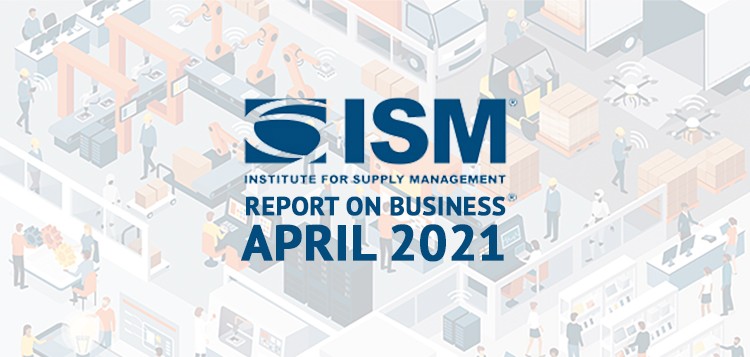COVID-19 Batters April 2020 Manufacturing ISM® Report On Business®

2019 was a rollercoaster year for manufacturing, with trade tensions and struggling supply chains bringing uncertainty to the industry. Now, in 2020, we finally have clarity on the direction of the manufacturing economy. Unfortunately, that clarity points to a significant downtrend and recession at the hands of COVID-19. The Novel Coronavirus hasn’t only disrupted global supply chains and manufacturing — its driven industry from cautiously optimistic to levels not seen since the Great Recession in 2008, all in just three months.
The April 2020 Manufacturing ISM® Report On Business® paints a grim picture of how destructive the pandemic has been for manufacturing. With nearly every metric at decade lows, there’s no more question as to if or when a manufacturing recession will hit. It’s here.
A stark decline across the board
The manufacturing PMI plummeted -7.6 points last month, coming to rest at 41.5. Not only is it the biggest single-month drop since October 2008, the metric is at its lowest point since April 2009.
The sharp cut to PMI comes from the downtrend across almost every individual metric that factors into it. Tallying the heaviest losses were production and new orders, which fell by -20.2 and -15.1 points, respectively. Employment shed -16.3 points, alongside export orders, which fell -11.3 points. Supplier deliveries rose 11 points as inventories on both customer and supplier sides grew. For many analysts, the fluctuation of these key indicators signals that we’re well into the start of a manufacturing recession, despite the holiday rally.
Perhaps more concerning is the implication for the broader economy. According to the report, “the April PMI® indicates a contraction of the overall economy after 131 consecutive months of growth.”
COVID-19 dominates the headlines
It’s no secret why the manufacturing economy has sunk so far so fast. COVID-19 has strangled world supply chains, shuttered producers, and decimated the spending power of consumers. It’s not just in the U.S., either. Countries around the world have experienced degrees of economic devastation as the pandemic progresses through its cycle. Only now is China beginning to reopen its factories.
The problem facing domestic manufacturing right now isn’t the uphill battle to reopen manufacturing — it’s the damage that’s already done. U.S. manufacturing weighs heavily in favor of transportation (automotive, aerospace), as well as food production. Each of these segments has been especially battered by COVID-19. Automotive sales fell 36% from March to April alone. Boeing’s operational headwinds are large enough to put the entire Seattle economy into question.
Nothing paints the seriousness of the disruption quite like industry executives, who have spent the past few months reeling and pivoting to brace for recession:
“COVID-19 has destroyed our market and our company. Without a full recovery very soon, and some assistance, I fear for our ability to continue operations.” (Nonmetallic Mineral Products)
“Production stopped, other than to make hand sanitizer for those in need.” (Chemical Products)
“COVID-19 has created a wave of activities, including vendors closing, vendors focusing only on the medical industry, employees not coming to work, delayed shipments from overseas, etcetera.” (Transportation Equipment)
COVID-19 is the catalyst for these setbacks, but what happens after? The manufacturing economy isn’t poised to rebound overnight or even later in the year. The virus is still disrupting supply chains. Consumers’ buying power will remain stunted for the foreseeable future.
Manufacturing is in recession. How long until the general economy follows? With the April 2020 Report on Business® it seems we’ve already taken the first step into contraction. If the manufacturing economy is still the indicator of overall economic health as its always been, the next step is one into correction territory.